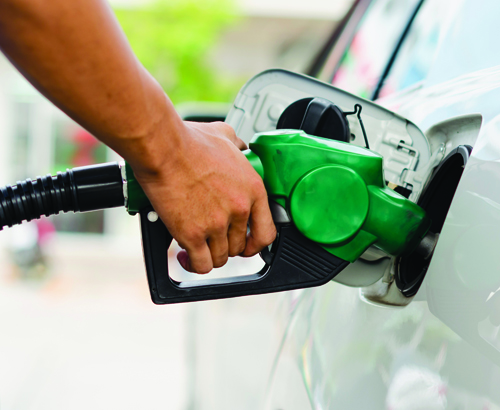In line with global trends, the price per metric tonnes of petrol, diesel and liquefied petroleum gas (LPG) imported from the world market into Ghana jumped in 2021 by between 50% and 57%.
The increases for the three products in real terms range from $209 to $248.99.
Each commodity and price hike
The increases in the price of imported refined petroleum products are petrol – $248.99 (57%), LPG – $237.59 (53%) and diesel – $209 (50%).
However, the ex-pump price which is the price consumers pay recorded between 33% and 39% increases last year.
Petrol – GH₵4.99 to GH₵6.65 per litre
The price of a litre of petrol increased by GH₵1.66, from GH₵4.99 in January to GH₵6.65 at the end of December 2021.
This represents 33% increase in the price of petrol at the pumps last year.
Diesel – GH₵4.99 to GH₵6.65 per litre
In the same vein, the price of a litre of diesel also went up by GH₵1.66 from GH₵4.99 in January to GH₵6.65 at the end of December 2021.
33% increase in diesel price
This also represents 33% increase in the price of diesel at the pumps last year.
LPG – GH₵5.90 to GH₵8.20 per kilogramme
For LPG, the price per kilogramme increased by GH₵2.30 from GH₵5.90 in January to GH₵8.20 as at the end of December 2021.
39% increase in petrol price
This means that the price of LPG went up by 39% on the Ghanaian market last year.
Petrol – $436.69 to $685.68 per metric tonnes
The world market price of petrol per metric tonne increased from $436.69 in January to $685.68 as at the end of December.
$248.99 increase
It shows that petrol witnessed $248.99 hike in prices, representing 57%.
Diesel – $419.28 to $628.28 per metric tonnes
In the same vein, the price of diesel per metric tonne jumped by $209 from $419.28 in January to $628.28.
This represents an increase of 50%.
LPG – $445.69 to $683.28 per metric tonnes
The price per metric tonnes of LPG recorded $237.59 increase, representing 53%.
It jumped from $445.69 in January to $683.28 at the end of 2021.
The prices of crude oil and refined petroleum products had seen sharp increases on the world market due to a rise in demand of oil globally without a corresponding increase in supply, particularly from the Organisation of Petroleum Exporting Countries (OPEC) and its allies.
Full deregulation of the petroleum sector was implemented to save government from mounting debts that threatened the economy.
$3.11bn spent on subsidies
Data available shows that government has spent $3.11 billion as subsidies on petroleum products in a period of 10 years.
Critics argue that the costly and inefficient subsidies, which were incurred between 2008 and 2018, could have been used for developmental projects across the country.
The subsidies comprised real value factor (RVF) and forex loss under recoveries interest (FLURI) claims.
Real value factor refers to the financial cost (interest) incurred by bulk oil distribution companies (BDCs) for the delayed payments of price under-recoveries.
Forex loss under recoveries interest, on the other hand, refers to the financial cost borne by BDCs for the delayed payment of forex loss under recovery (FLUR) by government.
Breakdown of the various subsidies
The breakdown includes FLUR – $806.2 million ($806,245,964); FLURI – $85.3 million ($85,393,670); PUR – $2.1 billion ($2,130,851,365); and RVF – $87.7 million ($87,713,497).
Negatives of subsidies
Considering the fact that the opportunity cost of these subsidies is the revenue forgone by not charging the international prices domestically, there is a high probability, therefore, of a shift in the allocation of scarce economic resources to finance the increase in crude oil price in the country.
Consumption subsidies, on the other hand, increase domestic consumption and trigger an increase in demand for import.
This increases the energy dependency ratio and worsens the balance of payment and the energy security in Ghana.
Furthermore, consumption subsidies lead to wasteful consumption and inefficient use of energy.
This puts pressure on government resources and leads to unsustainable budget deficits in the country.
- Monday, May 12, 2025 Newspaper Headlines - 12 May 2025
- With honour culture, Mahama wouldn’t need appointee Code - 12 May 2025
- Dollar role under pressure from portfolio rebalancing - 11 May 2025

